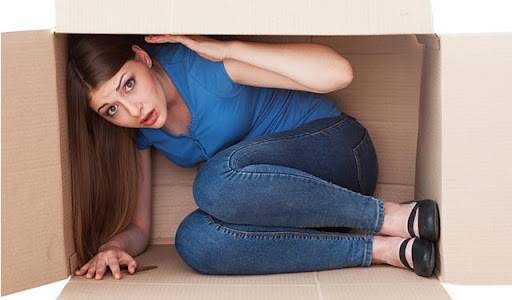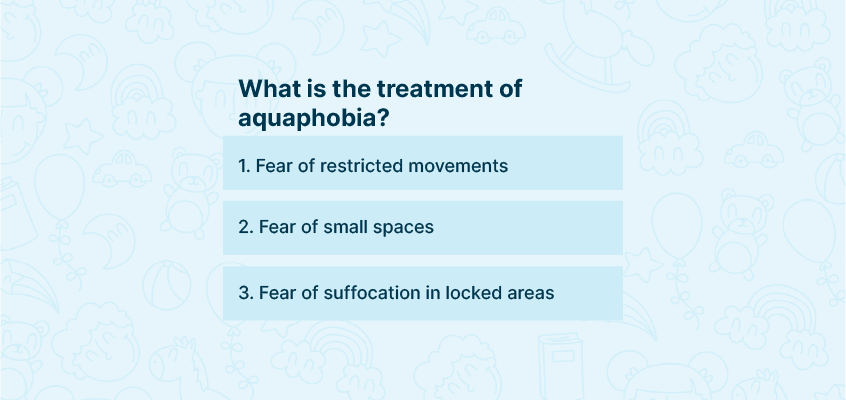Claustrophobia Definition
Claustrophobia is an irrational fear of something that poses little or no threat. Certain specific situations trigger it, but they hardly pose a threat. You don’t have to be embarrassed if you have claustrophobia because everyone develops phobias at some point in their lives.
However, you may need therapy to help manage your symptoms.
What is claustrophobia?
Claustrophobia is a specific anxiety disorder characterized by an intense fear of enclosed spaces. Claustrophobia is one of the most common phobias wherein you develop fear while being in confined or narrow spaces, with the feeling of not getting out and being trapped there indefinitely. You avoid going to closed areas like dark toilets, elevators, caves, etc. Usually, it starts in children or teens and continues into adulthood. Although claustrophobia is not a panic disorder, it can give you the impression that you are.
What are the symptoms of claustrophobia?
- If you have claustrophobia, you may find yourself anxious on aeroplanes, feeling like you need to escape, and you will be worried about safety.
- When there is fear, you might be concerned that you’ll run out of oxygen and you will be unable to breathe.
- Anxiety can range from mild nervousness to a full-blown panic attack.
- When anxiety peaks, you may experience the following symptoms, which vary in severity: Shortness of breath, increased heartbeat, sweating, tremors, nausea, dizziness, dry mouth, hot flashes, hyperventilation, chest tightness or pain, disorientation, headaches, numbness, choking sensation, urge for going to the bathroom, and so on.
What are the causes of claustrophobia?
- Claustrophobia may be related to the dysfunctional Amygdala, a small section of our brain responsible for fear processing. Genetics control the size difference, which may interfere with how the brain processes fear.
- It can run in families.
- Childhood traumas of being confined to a small space or a dark room or being stuck in an elevator or a closet for an extended period are significant causes of claustrophobia. This trauma triggers fear or anxiety for similar situations in the future.
- Adults can develop claustrophobia later in life following a claustrophobic experience. For example, enter an MRI machine.
- An exaggerated sense of proximity. Violation of this space can trigger claustrophobia.
Know more about When do you need a Panic Attack Therapist?
What are the types of claustrophobia?
Different people have different types of fear of being confined or trapped.
- Fear of restricted movements: An individual with claustrophobia may experience anxiety attacks when restricted in their direction. Restriction of action because of being strapped to a seat – like in a roller coaster ride or limitation of movement wearing a cast for broken bones – can cause claustrophobia.
- Fear of small spaces: An individual with claustrophobia may experience anxiety attacks during entrapment in small specific types of rooms like elevators, cellars, cars, trains, cafes, aeroplanes, tunnels, crowded areas. MRI scan, which requires the person to remain in a cramped space for a more extended period, can trigger anxiety.
- Fear of suffocation in locked areas: A fear of suffocation could develop, making you feel like you’re running out of oxygen or having trouble breathing. During an attack, a claustrophobic person feels suffocated and removes their clothing, which gives them the feeling of living more freely.
How can you get rid of claustrophobia?
Fear isn’t just in your brain; fear lives in your body. Your body has evolved to sense danger and send these danger signals to the brain to help fight the threat. When you have claustrophobia, you may avoid the spaces that make you feel uncomfortable. However, this is not a long-term solution because you may find yourself in frightening but unavoidable situations many times in life.
Here are 10 tips for dealing with an attack:
- Do not engage in the brain’s worries, and don’t let yourself fall into your old behaviour. Force yourself not to care. Just ignore and distract. Allow them to exist in the head without paying attention to them.
- Force yourself to face your fears. You have to give equal attention to your emotions and the logical part of your brain. Do not resist the attack when it’s happening. Instead, accept it. Fear will become more frightening to deal with, so one must control anxiety. Whatever you’re afraid of, face it with courage, and it should fade away gradually.
- Keep a bubble blower or essential oil handy. When you are afraid, blowing bubbles is a way to slow your exhalation and slow your breath, which will slow the nervous system’s response. Essential oils stimulate the brain stem.
- Guided fantasy. It is a story you tell yourself and visualise. The report will take you through the experiences, fears, and emotions that you might have associated with a specific thing like being in an elevator. Feelings exist in your thoughts. Feelings get stronger each time you experience the phobia virtually. The theory is that the more you’re exposed to something that scares you, the less fearful you’ll become. Getting the experience of being in a confined space in the virtual world can help you overcome your fear in a safe environment.
- Graduated exposure. With an attack, breathe slowly and count to 3 with each breath. Try to focus on something that makes you feel safe, like the time passing by on your watch or that you would be okay and get out of this situation soon. Remind yourself repeatedly that your fear and anxiety shall pass.
- Challenge yourself with situations that trigger this fear and prove that the fear is irrational. Visualise or focus on a happy memory that makes you calm.
- Mild claustrophobia can be treated with relaxation and taking deep breaths after closing your eyes. When you suffer a panic attack, you can control your fear by taking deep breaths. If your palms are sweating or your heart is racing, the best thing you can do is not fight it. All you can do is remain calm and feel the panic in this situation. Simply exhale it.
- Stay calm and take a break to do something unrelated to your fear or problem. The goal is to get the mind used to panic, which will help to eliminate the fear.
- Alcohol or drugs will not help you overcome your fear or anxiety. Instead, try doing simple things like sleeping early, going for a walk, and so on, which can help to calm your senses.
- Sharing concerns can reduce fear to a large extent. Discuss your concerns with your friends and family. They’d make you feel more at ease about getting over it and make it appear as if it never existed.
Read more about Meditation Is Helpful for People with Panic Attacks
Conclusion
To summaries, being afraid does not imply that you are in danger. It’s just your body’s attempt to protect you by making you fearful. It is up to you to overcome it with consistent efforts and address the underlying cause. If you have claustrophobia, you should consult a doctor. Our doctors can offer a diagnosis and treatment recommendations to help them get back on track. Contact us today!
Talk to Our Professionals






